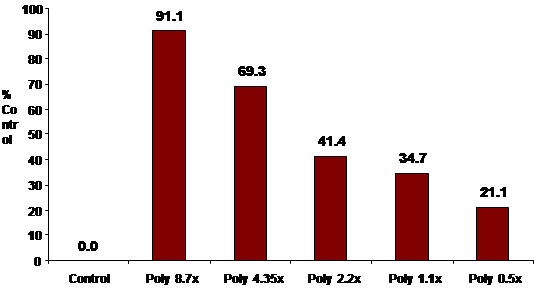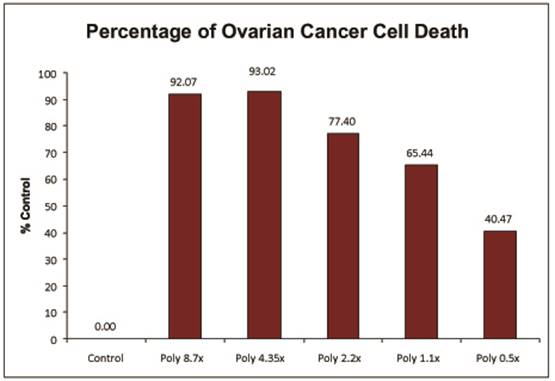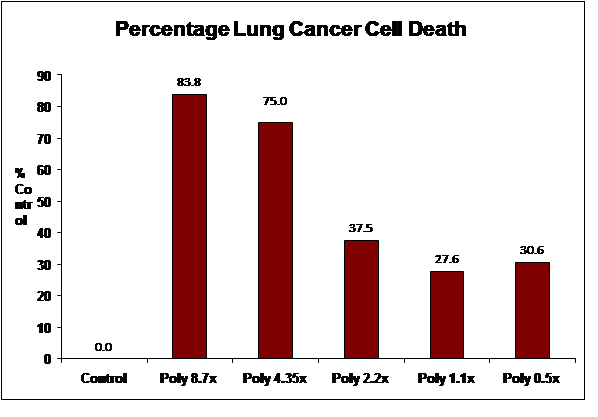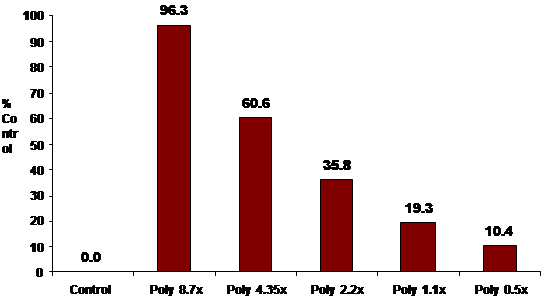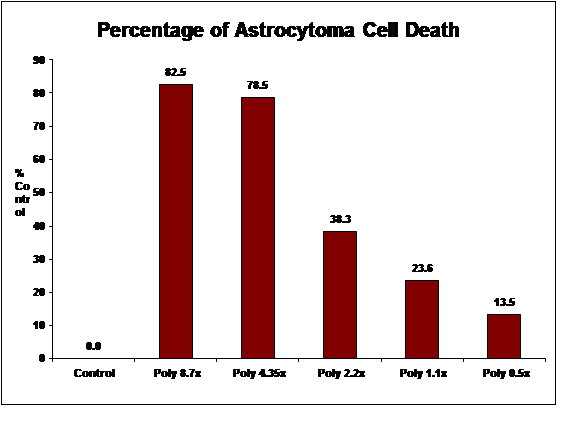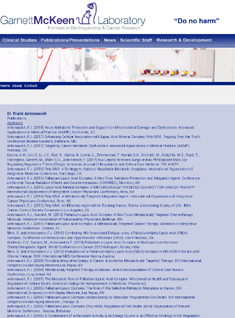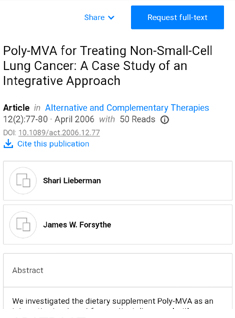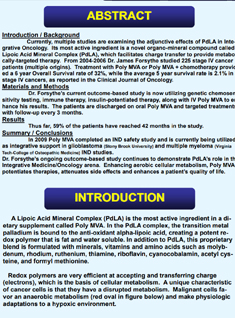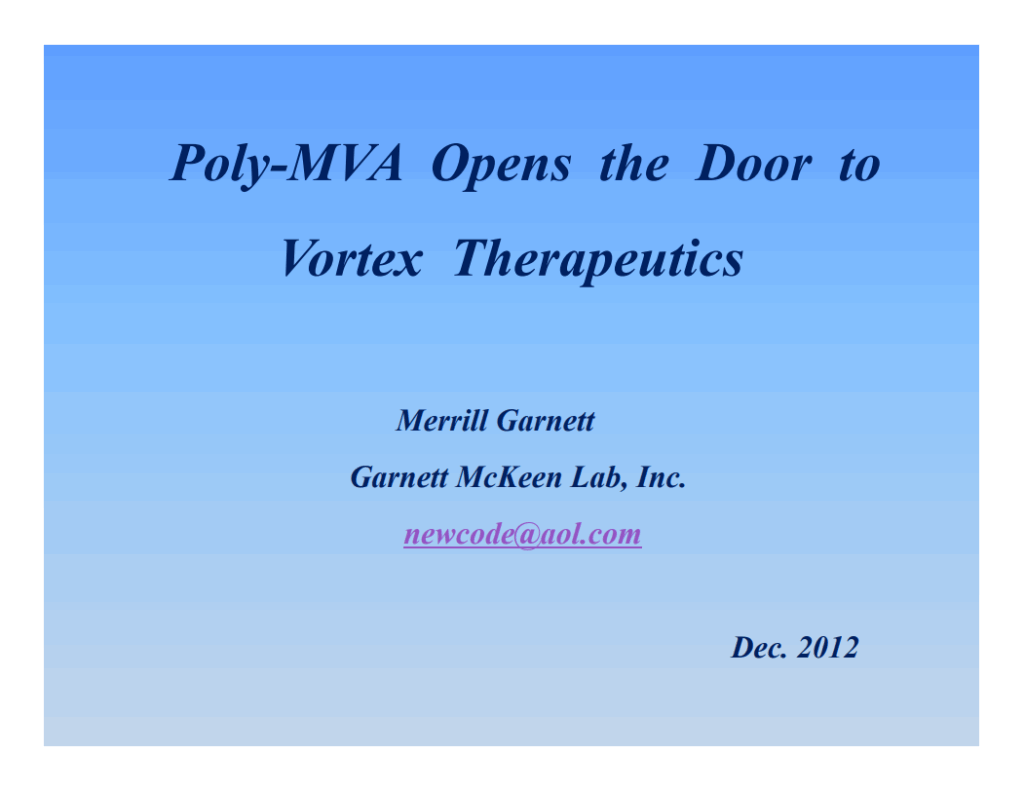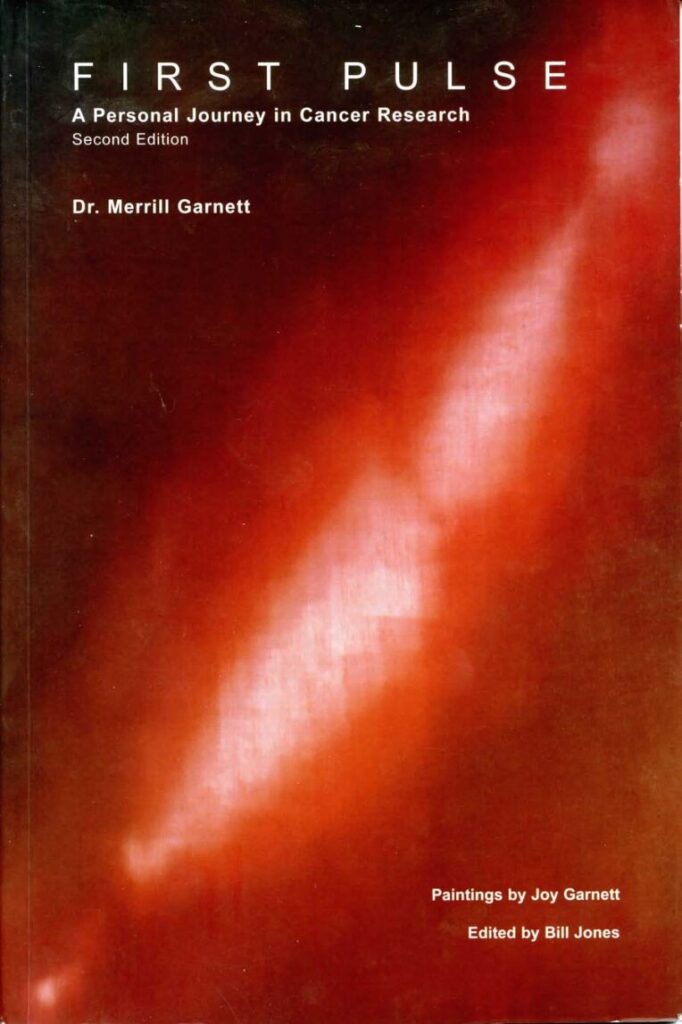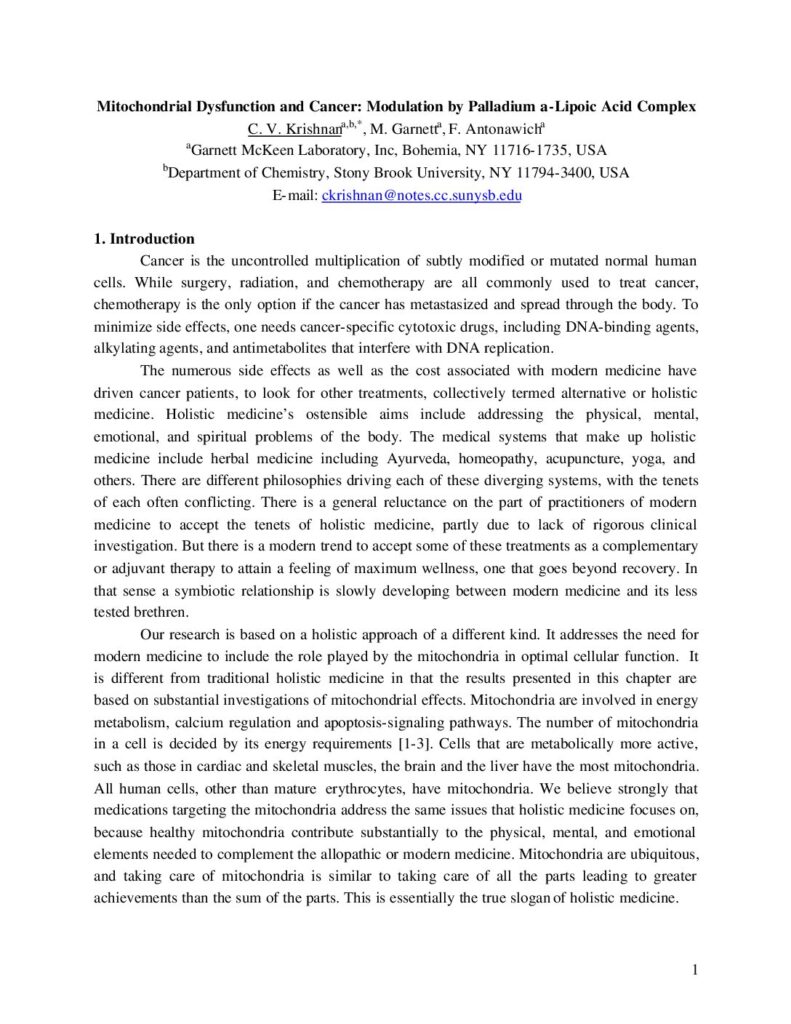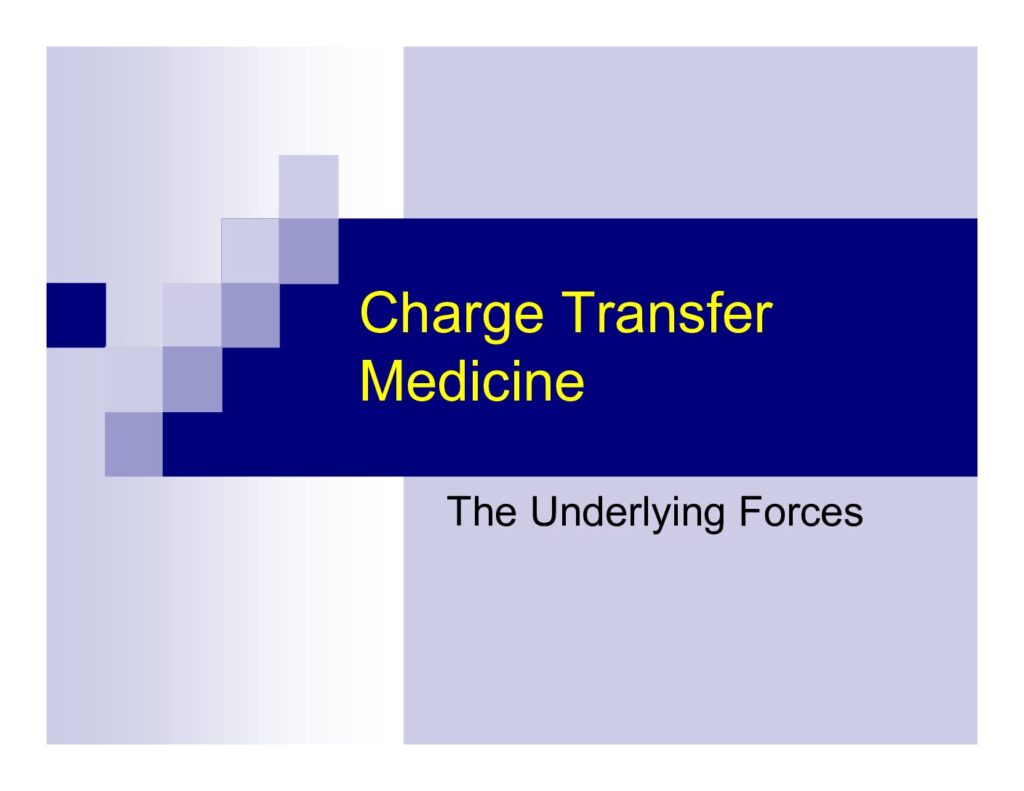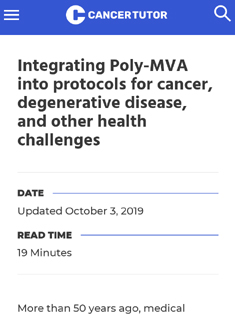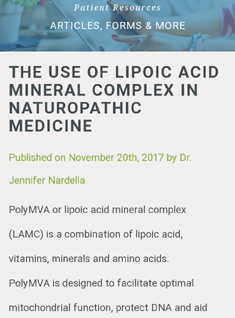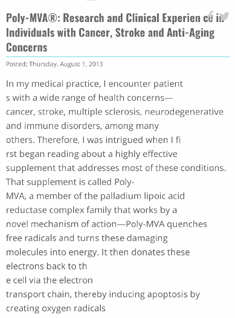realize the potential
of Metabolic Medicine
Metabolic Cancer Therapies
Put simply, cancer cells have aberrant energy metabolism compared to normal cells. Metabolic Cancer therapies attempt to exploit this difference. Cancer cells have a reduced capacity to generate energy with oxygen (oxidative energy production), with a concurrent increase in energy generation without oxygen. On Average a healthy cell produces 89% of its energy using oxygen, and 11% through non-oxidative metabolism (non-oxidative metabolism is also known as “fermentation”). Oxidative energy production is far more efficient than fermentation. Almost 20 times more energy is released when glucose is completely oxidized, as opposed to when it is fermented.
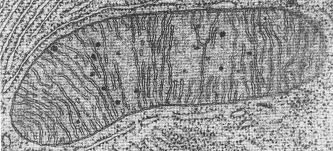
Healthy Mitochondria. Note the abundant looping structures inside the mitochondria (cristae), this is where all energy is produced through oxidative pathways.
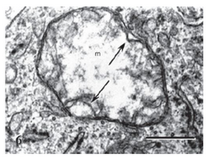
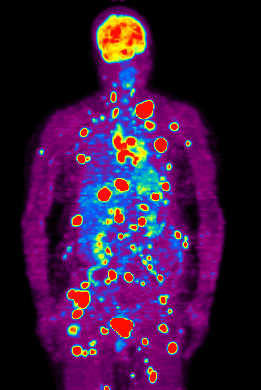
Oxidative energy production takes place in a cellular organelle called the mitochondria. The mitochondria are known as the cellular “power plants.” Also telling is the fact that the greater the degree of fermentation displayed by a given cancer, the more aggressive the cancer. Because a tumor cell’s mitochondria appear to be dis-regulated, and generate energy by such an inefficient pathway, they have to consume much more glucose to remain viable. A glance at a PET scan, which uses a radioactive labeled glucose analog to image cancer, provides stunning visual evidence of the voracious appetite tumor cells have for glucose compared to normal tissue.
Altered Metabolism May be One of the Drivers of Cancer
It is well established that once a cell has an impaired ability to produce energy through oxidative pathways, the genomic instability (increased potential for DNA mutations to occur) that accompanies tumor development, inevitable follows. While it’s true that most of the agents known to cause cancer; chemical carcinogens, viruses, radiation, and inflammation can cause mutations to DNA, it is also true these provocative agents damage the mitochondria. The metabolic theory of cancer states that once the mitochondria of a given cell become disregulated, and the cell reverts to fermentation to obtain energy, a plethora of metabolic and epigenetic modifications participate in the origin of cancer.
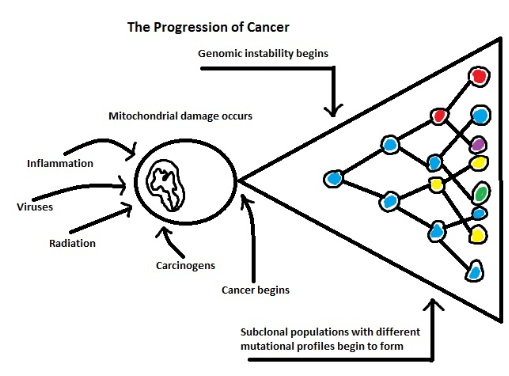
Poly-MVA Research, Science and Studies
Energy and Ischemia Studies
Antonawich, 2004
View Paper
Sudheesh, 2009
View Paper
Sudheesh, 2010
View Paper
Ajith, et al. , Antonawich 2014
View Paper
Dr. Anderson Research and Protocols
Oncology Outcome Studies
Oncologist 1,000 Patient/Stage IV Study
View Paper
KGK Synergize
Lab Tests on Cell Lines
View Paper
Case studies for prostate
Shari Lieberman, Ph.D., C.N.S., F.A.C.N.,
and James W. Forsythe, M.D., H.M.D.
View Paper
Radio Therapy
Selim 2012 A
View Paper
Selim 2012 B
View Paper
El-Marakby 2013 A
View Paper
El-Marakby 2013 B
View Paper
Published Articles
Poly-MVA / Lipoic Acid Complex articles on Pubmed.com
View Paper
FQ-Tox-Antiox-LAMC-Case-2012
View Paper
Dr. Anderson Research and Protocols
Nutrient Injection Therapies for Chronic Fatigue and Fibromyalgia
View Paper
Poly-MVA Inventor
See List of Patent filings
for Dr. Merrill Garnett
View Paper
CLINICAL STUDIES Summary
View Paper
Safety LAMC Summary
View Paper
Dr. Merrill Garnett SCIENTIFIC RESEARCH
Electrogenetics Summary
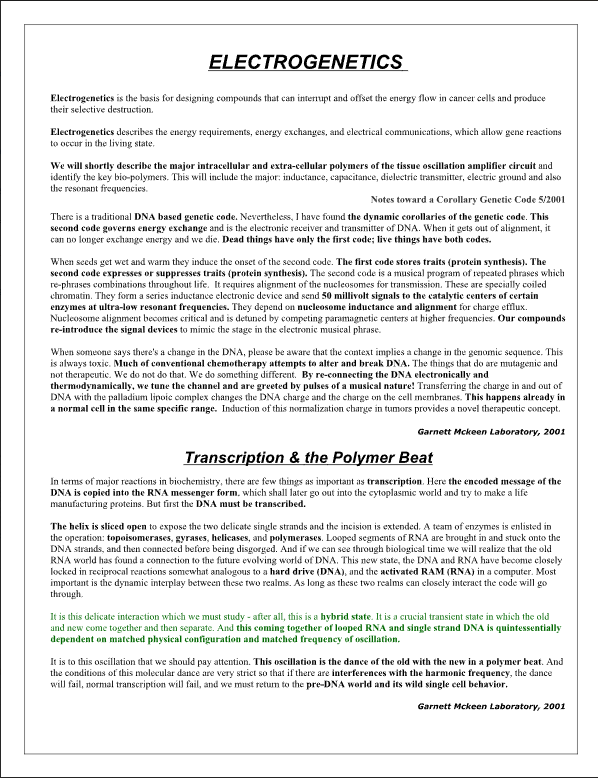
The Equivalent Circuit Code of the Living State
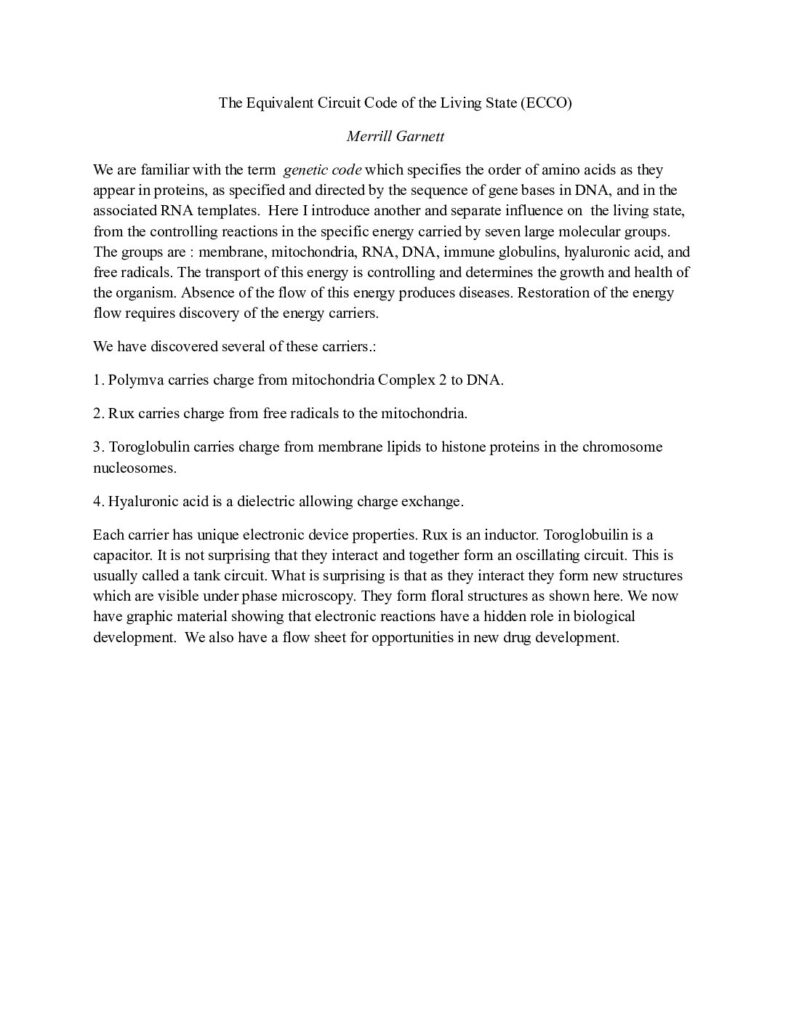
2 ECS May 2009 Paramagnetic Doping of DNA Forms SpinLattice Films
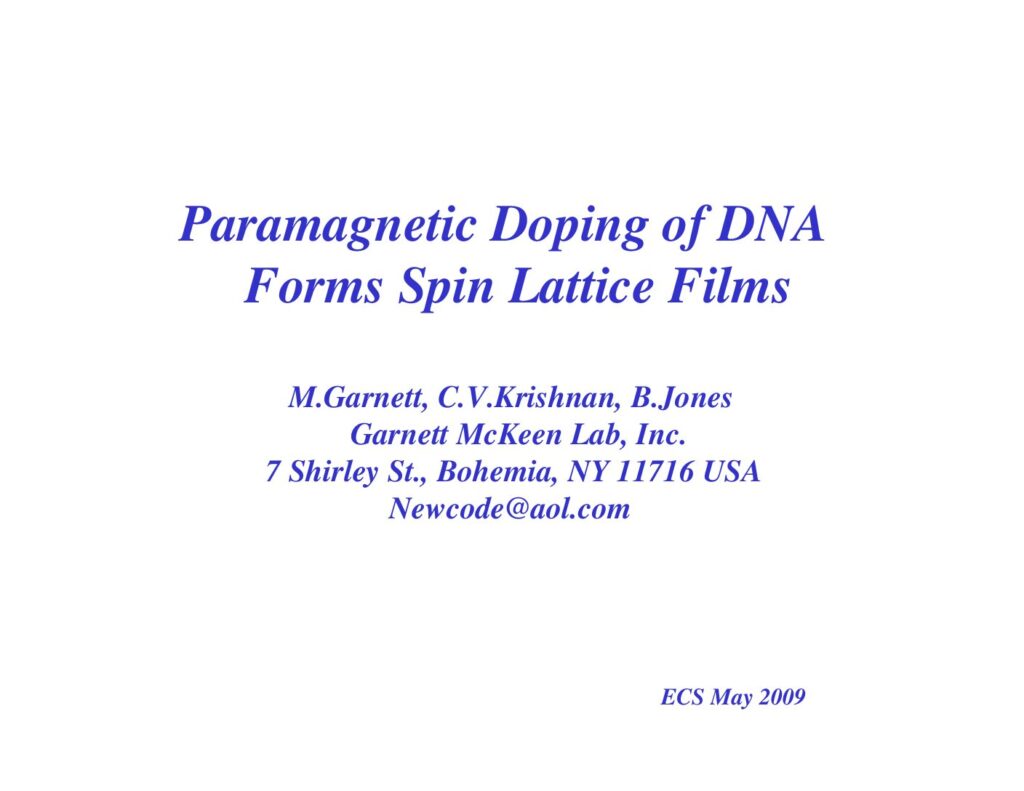
Molecular Qi
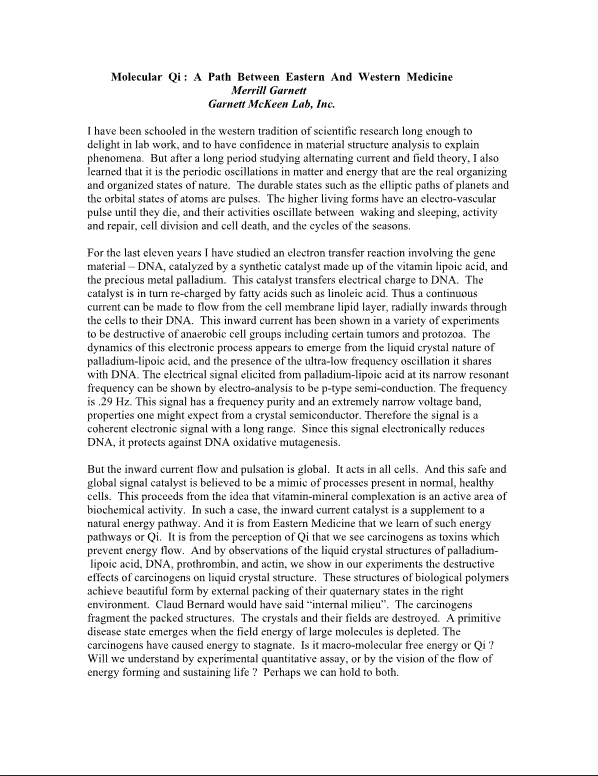
The Unique Nature of Palladium in Therapeutic Research
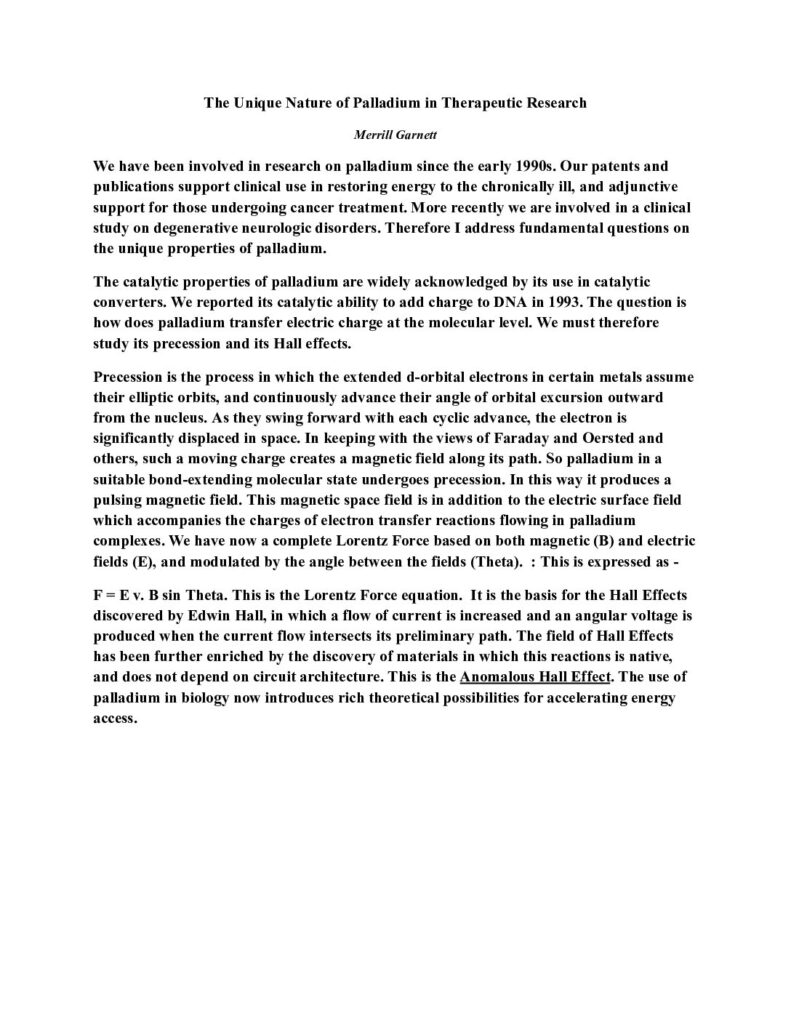
Forsythe single sheet summary

Poly-MVA For Vets and Pets
2017 VETRINARIAN Lipoic Acid Mineral Complex
Chronic / Neurological / Cancer / Palliative / General Care
Special Care Foundation for Companion Animals- Angel Care Cancer Center
Gregory K. Ogilvie, DVM
View Paper
Poly-MVA Articles

Poly MVA causes significant cell death after 48 Hours of exposure
per mL. SHAPE \* MERGEFORMAT CPM
The table below illustrates the statistically significant level of cell death
(p must be equal to or less than 0.05) induced by POLY-MVA after 48 hours of initial exposure:
Garnett McKeen In vitro Cancer Assays:
Garnett McKeen Laboratory Inc. (GML) chose to mimic the National Cancer Institute’s (NCI) cell screening protocol.
The following cell lines were selected from the NCI repository:
MCF-7 (breast adenocarcinoma), and A549 (lung non-small cell adenocarcinoma).
The data below represents the completion of the Breast Cancer (MCF-7), Ovarian Cancer (OVCAR-5) and Lung Carcinoma (A549) assay.
We have also completed assays using stage IV glioblastoma multiforme (H-80) and astrocytoma (H-4) brain tumor lines.
As noted below, all of the studies demonstrated significant cell death.

CANCER CELL DEATH RATE IN 5 CELL LINES
After 48 hours of exposure
